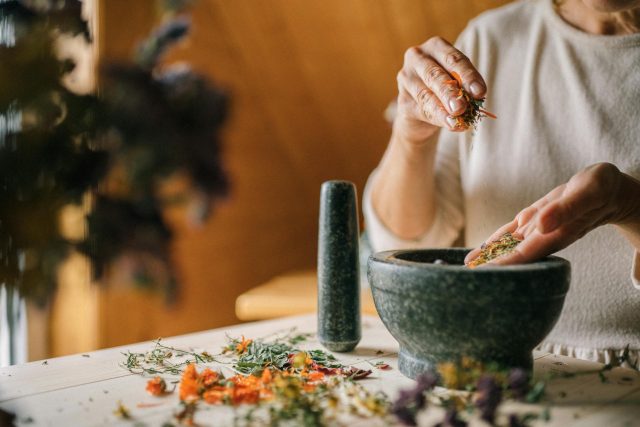Herbal medicine feels natural—but is it truly safe? Let’s uncover the truth behind common herbal medicine myths and what science really says.
Introduction
Natural doesn’t always mean safe. You’ve heard it before, maybe even thought it. A friend says, “Try this herb, it works wonders.” Another swears by a tea that “cures everything.”
But what’s the truth?
Herbal medicines go back thousands of years. From ancient China to Ayurveda in India, nature has been our go-to pharmacy. Yet today, despite scientific advances, millions still turn to herbs first. Some work. Others? Not so much.
This article unpacks the truth—are herbal remedies 100% safe? We’ll walk through the myths, facts, risks, and what doctors really think. Whether you’re a curious reader or a med student starting out, this is your go-to guide. No fluff. Just facts—with a bit of story.
Let’s start.
What Makes People Believe Herbal Medicine is Always Safe?
There’s something comforting about herbs. They grow in soil. They smell like earth. No long chemical names or scary side effects listed on bottles.
People trust them. But why?
- They’re “natural.”
- Grandparents used them.
- Fewer side effects—or so people think.
- Easier to get. No prescription needed.
Sounds good, right? But here’s the thing. Many believe that because herbs are plants, they can’t harm you. That’s a myth. A dangerous one.
Let’s break that.
Herbal Medicine Myths vs Reality
Myth #1: If it’s natural, it’s safe.
Well, poison ivy is natural. So is arsenic. Doesn’t mean you should eat them.
Plenty of herbs interact with medications. Others affect your liver or kidneys. Just because something grows in the wild doesn’t mean it’s harmless.
Myth #2: Herbal remedies have no side effects.
Wrong again. Some herbs thin your blood. Others raise your heart rate. St. John’s Wort can mess with birth control. Licorice root can raise blood pressure. Want more? There’s a list.
Myth #3: If it works for others, it’ll work for me.
Bodies are different. What helps one person might hurt another. That “energy tea” your cousin drinks daily? Could give you insomnia or anxiety.
Common Herbal Remedies That Can Be Risky
Let’s talk names. These are popular. Sold everywhere. Used by millions.
St. John’s Wort
Used for: Mild depression.
Risk: Interacts with antidepressants, birth control, blood thinners. Can cause mood swings. Even seizures.
Ginseng
Used for: Boosting energy.
Risk: Can raise blood pressure. May interfere with diabetes meds. Sleep troubles? Ginseng might make it worse.
Kava
Used for: Anxiety and sleep.
Risk: Linked to liver damage. In some countries, it’s banned.
Aloe Vera (when taken orally)
Used for: Digestion.
Risk: Can cause stomach cramps, diarrhea. High doses? Kidney issues.
Ephedra (Ma Huang)
Used for: Weight loss.
Risk: Banned in many places. Raises heart rate, blood pressure. Has caused heart attacks.
And that’s just the start.
Why Regulation is a Big Problem
Here’s a shocker. In many countries—including the U.S.—herbal products aren’t regulated like medicines. They fall under “supplements.” What does that mean?
- No need to prove they work
- No mandatory safety testing
- Labels can be misleading. Or just wrong
So, you could buy a bottle of “herbal calm drops,” and it might contain nothing—or everything. Maybe even something harmful.
A 2015 study found that nearly 60% of herbal supplements had ingredients not listed on the label. Some had none of the listed herb at all.
Yikes.
The Science Isn’t Always There
Some herbs have decent research. Like peppermint for IBS. Ginger for nausea. But many don’t. Or the studies are weak, small, or poorly done.
And yet—they sell. Because marketing works. Because hope sells better than science.
Also, companies don’t need FDA approval to make claims like “supports heart health.” That’s vague enough to skate by legally.
It’s not about fear. It’s about facts.
Side Effects and Hidden Dangers
Okay. So what could actually go wrong?
Here are a few real concerns:
- Liver damage (seen with kava, black cohosh)
- Kidney injury (some Chinese herbs contain heavy metals)
- Allergic reactions (rashes, breathing issues)
- Hormonal effects (phytoestrogens in soy or red clover)
- Bleeding risks (ginkgo and garlic + blood thinners = bad mix)
Plus, contamination is common. Pesticides, bacteria, even lead.
Real Patient Story: Mrs. Khan’s Herbal Tea Habit
Mrs. Khan, 58. Diabetic. Took metformin for years. One day, a neighbor suggested a “sugar control” herbal tea. Sounded harmless.
She started drinking it daily. Within weeks, her sugar levels dropped dangerously. Dizzy spells. Confusion. One night, she fainted.
At the hospital? Severe hypoglycemia. The tea had compounds that acted like insulin. Her meds plus the tea? Too much.
She stopped the tea. Got better. And never took health advice from her neighbor again.
Herbal Medicine in Traditional Systems
Let’s be fair. Herbal medicine isn’t evil. Traditional Chinese Medicine (TCM), Ayurveda, and Unani have been around for centuries. They’ve helped millions.
But they’re used in a system. By trained practitioners. With proper diagnoses, dosage, and balance.
Modern usage? Often random. No guidance. Just “Google says it’s good.” That’s the problem.
Can Herbs and Modern Medicine Work Together?
Yes, sometimes. But only when supervised.
Doctors now use ginger for nausea during chemo. Psyllium for cholesterol. Even turmeric for inflammation.
But here’s the catch—timing, dose, interaction—all must be managed.
Tell your doctor what herbs you take. Don’t hide it. It’s not “just a tea.” It’s part of your treatment plan now.
How to Use Herbal Medicine Safely
Let’s say you still want to use herbs. Here’s how to do it smartly:
- Talk to your doctor or pharmacist
- Check for drug interactions
- Buy from trusted brands (Look for GMP-certified)
- Stick to recommended doses
- Watch for side effects
- Start one herb at a time
And remember: “more” doesn’t mean “better.” Especially in medicine.
Conclusion
So. Are herbal medicines 100% safe? Nope. Not even close. But they’re not evil either.
They’re powerful tools. When used wisely. Like any medicine, they need respect, research, and professional guidance.
So before popping that capsule or sipping that mysterious tea—ask questions. Ask your doctor. Ask yourself.
Because health shouldn’t be a gamble.
MedicinesExplained—bridging traditional wisdom with modern medicine.
FAQ: Quick Answers About Herbal Medicine Myths
- Are herbal medicines safer than pharmaceuticals? Not always. Some herbs can be just as strong—or dangerous.
- Do all herbal remedies work? Nope. Many don’t have enough research to back their claims.
- Can I take herbs with my usual medications? Maybe. But check with your doctor first. Some combos are risky.
- Are “natural” products regulated? Often no. Many herbal products aren’t tested for safety or effectiveness.
- What’s the biggest risk of using herbs? Side effects, interactions, and contamination.
- Should I stop my prescribed meds if I take herbs? Never without medical advice.
- Are teas safer than capsules? Not always. It depends on the herb, dose, and how it’s prepared.
- How can I find good herbal products? Look for GMP labels, clinical testing, and clear ingredient lists.
- Can herbs treat serious diseases? Rarely alone. They may support—but not replace—conventional treatment.
- Why do people still use herbs? Culture, tradition, access—and sometimes, they work. But always check first.
Final Note
Herbs aren’t harmless. They’re just misunderstood.
Let’s stop believing the myths—and start making safer choices.










